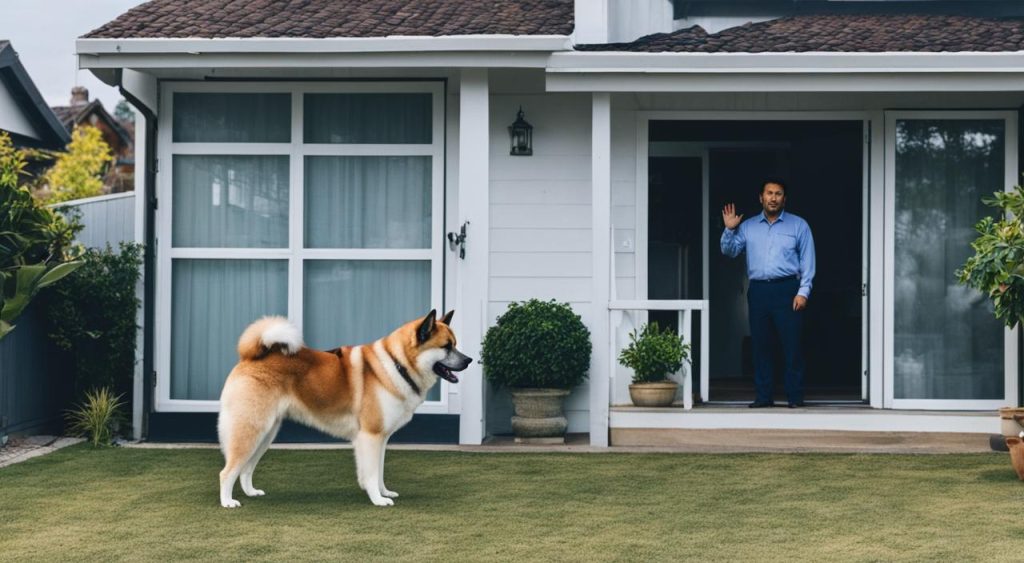When considering adding an Akita dog to your family, it’s natural to wonder about their barking tendencies. Do Akita dogs bark a lot? Do they have vocal behaviors that you should be aware of? In this article, we’ll delve into the world of Akita dog barking and provide you with insights into their unique vocal habits.
Akitas, known as “The Silent Hunter,” are not generally known for excessive barking. Unlike some other breeds, they don’t bark without reason. Akitas typically reserve their barking for situations where they feel the need to protect their family or territory. This can be an advantage for those seeking a dog for home protection.
Although Akitas are not prone to constant barking, they will bark when they spot someone or something they perceive as a threat. Their bark is deep, loud, and powerful due to their size and muscular build. This makes them excellent watch dogs, as their bark can be intimidating. Additionally, Akitas may bark when someone approaches their property or knocks on the door.
While barking is a part of their vocal repertoire, Akitas also exhibit other vocal behaviors like growling and occasional howling. However, compared to many other breeds, Akitas overall have minimal vocalization.
Key Takeaways:
- Akitas do not bark a lot unless they have a reason to bark.
- They use barking as a means of alerting their owners to potential threats or intruders.
- Akitas were bred for hunting and don’t bark unnecessarily to avoid alerting their prey.
- Their bark is loud and thunderous due to their size and muscular build.
- Akitas have minimal overall vocalization compared to other breeds.
Factors to Consider for Akita Dog Barking
When considering getting an Akita dog, it’s important to understand their barking tendencies. Akitas are not known for excessive barking and typically only bark when necessary. However, there are factors to consider regarding their barking habits.
Akitas are protective and territorial, so they may bark to alert their owners of any potential threats. Their instinct to protect their family and property is ingrained in their breed. This natural protective nature can manifest in barking behavior as a response to perceived intruders or unfamiliar situations.
Furthermore, Akitas were originally bred for hunting, which means they have a strong prey drive. This prey drive can trigger their barking when they encounter something they see as a potential threat, such as small animals or unfamiliar people.
To effectively control an Akita’s barking behavior, proper training and socialization are essential. Starting early and exposing them to various environments, people, and animals can help them become more comfortable and less reactive.
Regular exercise and mental stimulation are also crucial for managing excessive barking. A tired Akita is less likely to engage in unnecessary vocalizations, so providing them with ample physical activity and mental enrichment can help reduce their barking tendencies.
Additionally, understanding your Akita’s specific triggers is key to addressing their barking. Identifying what sets them off and using techniques like desensitization and counter-conditioning can help modify their response to those triggers and discourage excessive barking.
By taking these factors into consideration and implementing proper training, socialization, exercise, and understanding of their triggers, you can effectively manage and control your Akita’s barking behavior.
Strategies to Manage Akita Dog Barking
If you are struggling with excessive barking in your Akita dog, there are strategies you can use to manage and control their barking behavior.
First, identify and understand the triggers that cause your Akita to bark. This will help you develop a targeted plan to address the issue.
Desensitization and counter-conditioning techniques can be used to gradually expose your Akita to their triggers and change their emotional response. This involves introducing the triggers in a controlled and safe environment, rewarding your Akita for calm behavior, and gradually increasing the intensity of the triggers as they become more comfortable.
Positive reinforcement plays a key role in managing Akita dog barking. Use rewards and praise to reinforce calm and quiet behavior. When your Akita remains quiet in the presence of triggers, provide treats or verbal praise to let them know they are doing well.
“Teaching your Akita the ‘quiet’ command is an effective way to control their barking. Train them to associate the command with stopping their barking and reward them when they respond appropriately,” suggests Dr. Lisa Stevens, a certified dog trainer.
Redirecting your Akita’s attention to more productive activities can also be helpful. Engage them in interactive toys, puzzle games, or training sessions to keep their minds occupied and prevent boredom-induced barking.
Providing adequate exercise and mental stimulation for your Akita is essential in reducing their barking. Take them for regular walks, provide opportunities for play and socialization, and consider engaging in activities that tap into their natural instincts.
Creating a calm environment for your Akita can also contribute to reducing their barking. Minimize noise levels, establish a consistent routine, and provide them with a comfortable and secure space to retreat to when they feel anxious or overwhelmed.
Remember to manage their environment and limit exposure to triggers while working on implementing these strategies. Consistency, patience, and positive reinforcement are key to successfully managing and controlling Akita dog barking.
Conclusion
Akitas are not known for excessive barking and typically only bark when necessary. Their protective and territorial nature triggers their barking when they perceive a threat. Understanding their barking tendencies is crucial in managing and controlling their vocal behaviors.
To ensure a peaceful and harmonious living with your Akita dog, proper training and socialization are key. Using strategies like desensitization and positive reinforcement can help modify their barking behavior. Providing them with enough exercise and mental stimulation is important to keep them calm and content.
Create a calm environment for your Akita by establishing consistent routines and minimizing potential triggers. By implementing these strategies, you can build a strong bond and maintain a peaceful coexistence with your Akita dog.





